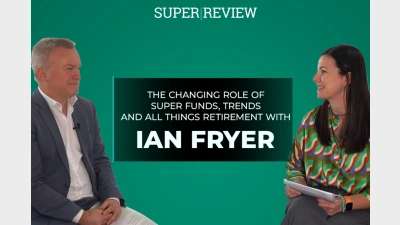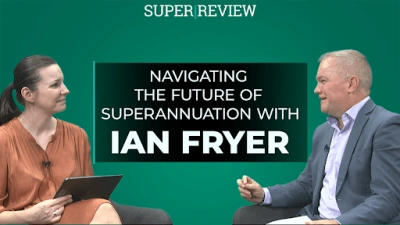2017 - a year of keeping calm and carrying on



Blake Briggs writes that despite the many challenges which confronted the superannuation industry in 2017, it was a case of keeping calm and carrying on.
As we near the end of 2017 the superannuation industry should be proud of the outstanding result that it has delivered for consumers.
The median growth fund returned over 10 per cent in the year to September, with the upper quartile funds returning close to 12 per cent. By any measure the industry’s performance has been strong, clearly outstripping the All Ordinaries index.
Legislation defining the objective of the superannuation system has stalled in parliament, but in spite of this funds have stayed calm and continued to deliver.
The Productivity Commission’s granular examination of the superannuation system has continued apace and the industry awaits its preliminary recommendations in early 2018.
Speculation has been amplified by open discussion of the Future Fund assuming a role as the national manager of default contributions. Countless commentators, fed up with political point-scoring, have welcomed the public musings of Future Fund Chairman, and former Treasurer, Peter Costello.
Costello’s “pox on both your houses” proposal appears to have run into a dry gully in the corridors of power, however whether the Productivity Commission will be wooed by his public musing is yet to be seen.
Without doubt the Future Fund could upend the superannuation industry as we know it and pose serious questions of passive superannuation providers that rely on default contributions for their survival.
A distant memory to all but a small cohort of retirees in Melbourne’s leafy eastern suburbs and a team of hardworking Australian Taxation Office (ATO) officials is the impact of successive Federal Budgets.
The 2017 Budget was perhaps the most substantial package of superannuation tax reforms since the 2016 Budget. Collectively, however, the Government has achieved its goal of materially limiting the extent to which superannuation can be used for wealth transfer.
The Government has committed to no further changes in the life of the Turnbull Government, a promise matched by Shadow Treasurer Chris Bowen (apart from further changes already announced).
The net result, however, has been an unprecedented increase in the complexity of the system. Uncertainty also stems from multiple Budget measures yet to be legislated, such as the first home buyer saving scheme, which consumers can conceivably already make contributions towards to but is not yet the law of the land.
On the provision of life insurance, superannuation funds continue to walk a fine line. Account erosion amongst younger and lower income savers is a serious issue, but the repricing of premiums over previous years has put trustees under considerable pressure.
The challenge is for the cross-industry working group (comprising all the major associations as well as consumer representatives) to deliver a tangible and meaningful solution before the patience of policy-makers is exhausted.
Drawing attention to some of the good work done by the industry which flies under the radar. The Gateway Network Governance Body - backed by the FSC, AIST, ASFA and gateways and employers - is now fully operational and helping ensure a stable and reliable Super Transaction Network.
Steady progress towards a retirement income framework has also been clouded by the headline differences between industry sectors.
At the recent FSC Retirement Income Products Conference, the Minister committed to implementing a common framework that will guide all trustees towards providing products for retirees that meet the needs of our rapidly ageing population.
The CIPRs proposal is not a priority for all funds as some funds have a younger demographic profile than others. However, there is an acute awareness across the sector that the consumers of one fund should not be disadvantaged as a result of the inaction of another.
Ultimately the goal is to create a framework that is sufficiently flexible to allow all funds to provide the retirement income products that suit their consumers, overlayed with robust protections.
If this was not enough, the year may yet finish with a bang.
Legislation is currently before the Senate that introduces a suite of new consumer protections, enhanced prudential oversight and a requirement for all trustees to appoint independent directors.
The reforms continue to divide the industry and are hard fought in political circles, but are passing unnoticed by consumers.
The challenge in 2018 will be for the industry to focus on the goal that binds us - delivering adequate retirement incomes for consumers.
Blake Briggs is Senior Policy Manager for Superannuation at the Financial Services Council
Recommended for you
In this Super Review Product Spotlight episode, host Maja Garaca Djurdjevic speaks with Ian Fryer, general manager at Chant West, to discuss the latest developments in superannuation.
In this new Super Review Product Spotlight episode, host Maja Garaca Djurdjevic is joined by Ian Fryer, the general manager at Chant West. Together, they explore Chant West's enduring reputation in the industry and share insights on the imminent changes in the super landscape.
While the last two years have been challenging for the superannuation industry, there is more to come in 2022 and super funds will need to rise up to the challenge.
With 20/20 hindsight, the disengagement which occurred with the introduction of the MySuper regime was a mistake which now needs to be urgently corrected.










